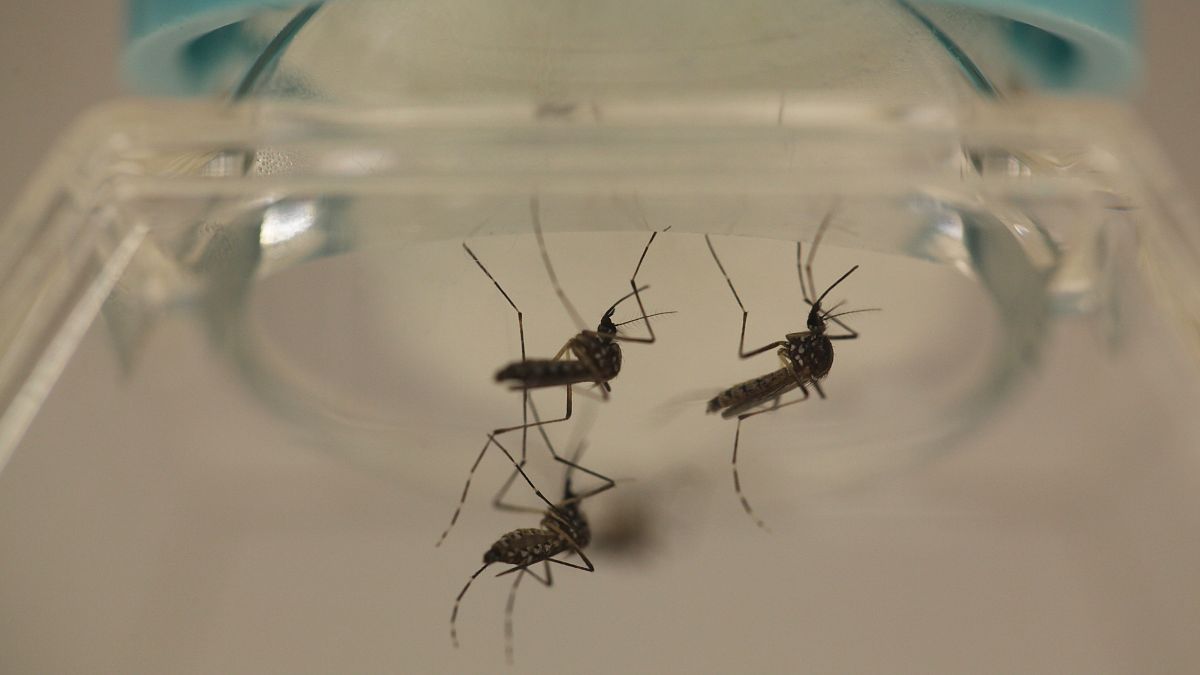A laboratory at Imperial College London has wiped out a population of malaria-carrying mosquitoes using gene editing. The lab spread a genetic modification that blocks female reproduction through a caged population
The development of a gene drive capable of collapsing the population of malaria-carrying mosquitos has been a long-sought scientific and technical goal.
Researchers in England have now successfully wiped out a population of malaria-carrying mosquitoes in a laboratory using gene editing. The team at Imperial College London spread a genetic modification that blocks female reproduction through the caged population, raising hopes of one day being able to wipe out malaria-carrying mosquitoes in the wild.
The lab used a revolutionary gene-editing tool known as CRISPR to engineer mosquitoes with a "gene drive," which rapidly transmitted a sterilizing mutation through other members of the mosquito's species.
After mosquitoes carrying the mutation were released into cages filled with unmodified mosquitoes, nearly all of the insects were wiped out
"We are not eliminating all mosquitos," says Professor Andrea Crisanti of Imperial College London who co-led the research, " In Africa alone, there are over 850 species of mosquitoes and only a handful of them transmit malaria, these are the mosquitos we are trying to destroy."
Professor Cristanti told Euronews this technology is only directed towards mosquitos which transmit malaria, but also said this scientific breakthrough could encourage further research in eradicating other insect-borne diseases. Professor Crisanti called his team's research a completely new era in genetics.
There are two key components of the lab's research. The first component would be to introduce a few mosquitos that carry this genetic modification into the greater population. This introduction could change the genetic makeup of the entire species generation upon generation up to 100%.
"Theoretically, we could introduce only a few mosquitos into a population of billions in a large area and within a year wipe out an entire species fo malaria-carrying mosquitos," says Crisanti.
The second component to their research is to selectively add this genetic modification to disrupt the gene that is essential for females to differentiate themselves. If this gene is destroyed, female mosquitoes will cease to develop eggs thus leading to a population collapse.
Crisanti told Euronews the gene in which the lab destroyed in testing is called "doublesex". If the female component is destroyed from the doublesex gene, the entire process of the mosquitos development is derailed.
However, several technical and scientific issues remain before this proof-to-principal demonstrations are advanced to effectively suppress a malaria-carrying mosquito population. Research showed that some mosquitos were able to develop a resistance to modification over generations. The average life-span of a female mosquito is 50 days while a male's lifespan is only 10 days.
Crisanti is also taking part in research to figure out where mosquitoes sit in the food web and believe scientists should continually proceed with caution when unnaturally altering an eco-system.
However, Crisanti believes the benefit of eliminating certain mosquitos outway environmental risk. He also believes that man-made factors such as climate change could lead to mosquito-borne illness in places not normally seen.
The African malaria mosquito is one of the world's deadliest animals. The World Health Organization estimates 216 million cases of malaria in 2016 and 445,000 deaths, with children under age five among the most susceptible.
The WHO African Region carries a disproportionately high share of the global malaria burden. In 2016, the region was home to 90% of malaria cases and 91% of malaria deaths.
Total funding for malaria control and elimination reached an estimated US$ 2.7 billion in 2016. Contributions from governments of endemic countries amounted to US$ 800 million, representing 31% of funding.
